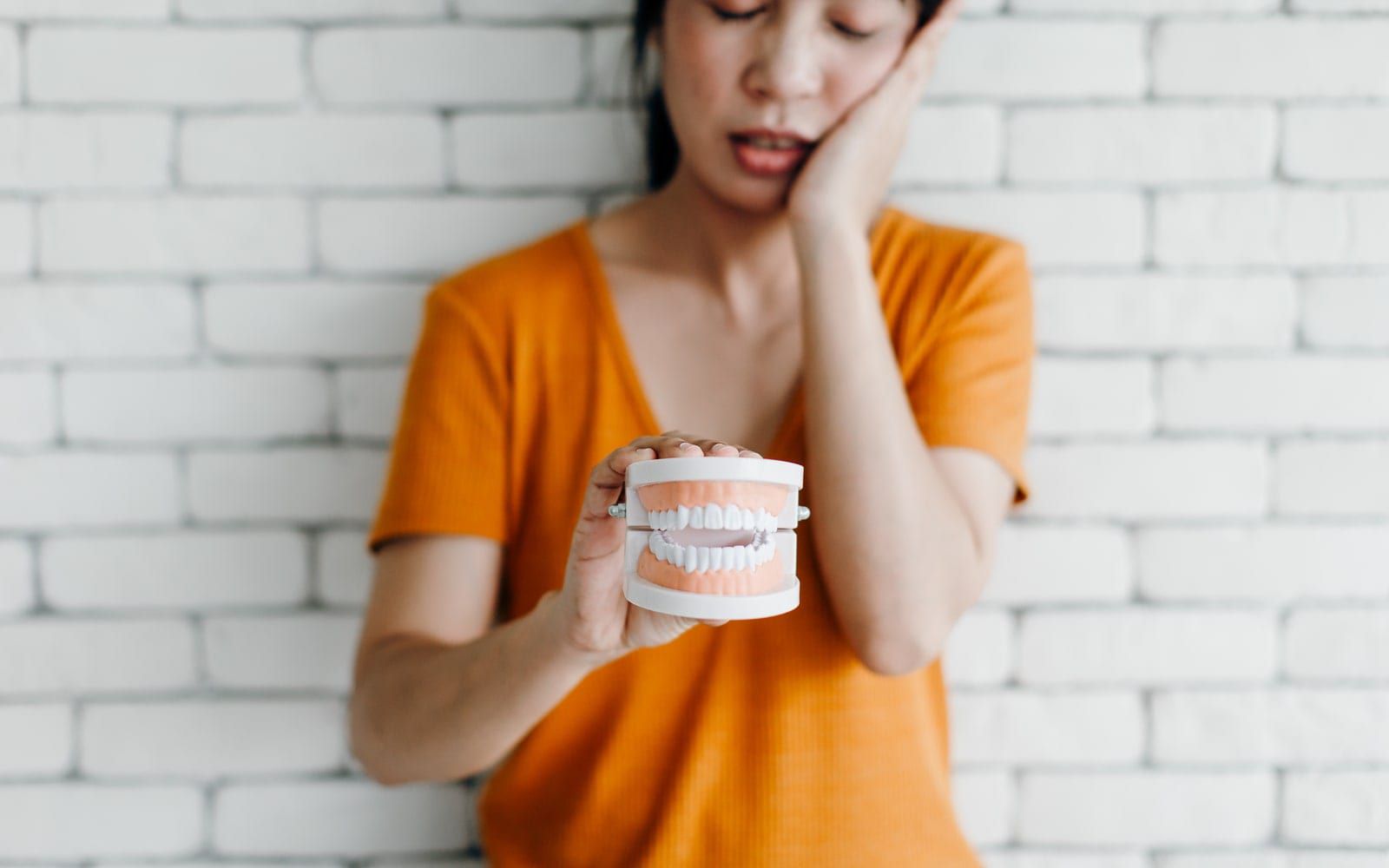If your gums bleed when you floss, you aren’t alone. This is a common issue that might even deter you from cleaning between your teeth — a routine the American Dental Association (ADA) recommends you do at least once a day.
However, flossing is crucial to having good oral hygiene, and flossing every day, along with proper brushing, is the best way to maintain healthy teeth and gums.
Why your gums bleed when flossing
Your gums bleed when the gum tissue is inflamed. This is due to an inflammatory response caused by bacteria that live in our mouth.
These bacteria live in a biofilm — known as plaque — that sticks to the teeth, especially between teeth and below the gums.
It is crucial to brush and floss your teeth to remove this biofilm and reduce the inflammation of the gums. Even though you might think it’s the flossing that’s causing you to bleed, it’s the opposite — and continuing to floss can help you stop this bleeding over time.
“It’s not so much the flossing. The gums bleed in response to flossing because the bacteria are already there, and there’s inflammation in the gums,” says Perry R. Klokkevold, DDS, Program Director of the Periodontics Residency Program at UCLA.
Here are four reasons why you may be dealing with inflammation of the gums and experiencing bleeding when you floss — and how to stop your gums from bleeding.
1. You haven’t flossed in a while
If you don’t keep up with flossing every day, you will experience a build-up of bacteria because you are not effectively cleaning off the biofilm on your teeth, Klokkevold says.
The more bacteria that builds up, the more inflamed your gums will be, so it’s important to keep flossing.
Important: It’s normal for gums to bleed when flossing, especially if you haven’t flossed in a while or are just starting to floss. This bleeding should go away as you continue to floss.
2. You may have a build-up of plaque
If you don’t have the best oral hygiene or if you haven’t had a professional dental cleaning done in a while, you may have a build-up of dental calculus, which is hardened biofilm, also called plaque or tartar.
Klokkevold says dental calculus is a “hotel for bacteria,” because they have microscopic spaces that may attract bacteria. This can make it very hard or impossible to clean them away. Since calculus harbors more bacteria, it can lead to even more inflammation of the gums.
According to Klokkevold, you may be able to spot a build-up of calculus if it’s attached to the tooth, yellow in color, hard, and cannot be brushed or flossed off. But it’s more likely that your dentist will be able to catch this — so make sure you’re keeping up with your regular check-ups.
3. Pregnancy
Pregnancy results in many intense hormonal changes. These hormonal changes make the inflammatory response worse and can make bleeding gums more likely, Klokkevold says.
What the research says: A 2019 study found that 28.68% of pregnant women surveyed had red, swollen gums.
Even if you haven’t ever experienced it before pregnancy, pregnancy hormones can kick inflammation into overdrive and cause your gums to bleed. Make sure you’re keeping up with your regular dental check-ups and practicing healthy dental hygiene throughout your pregnancy.
4. Gingivitis
Gingivitis is a mild form of gum disease. It results in inflammation of the gingiva, which refers to the gums that surround the teeth.
It can progress to periodontitis, which is more serious, causing inflammation of the periodontium, which goes even deeper, to the roots of the teeth. In either case, this inflammation can lead to bleeding during flossing.
Klokkevold says common signs of gum disease are:
If you have these symptoms, Klokkevold says it’s important to see your dentist and hygienist for a periodontal exam, professional cleaning, and potentially a referral to a periodontist.
How to stop bleeding gums
It is possible to stop gums from bleeding on your own at home, says Klokkevold.
However, Klokkevold says that anyone with bleeding gums should see their dentist, and then a periodontist if need be.
Here are some tips from Klokkevold for optimal tooth and gum health.
Insider’s takeaway
Flossing is non-negotiable for good oral hygiene. Regardless of the reason for your bleeding, daily flossing will result in better overall oral hygiene and fewer bacteria and plaque on the gums, which in turn will cause less bleeding and discomfort when you floss.
This content was originally published here.










